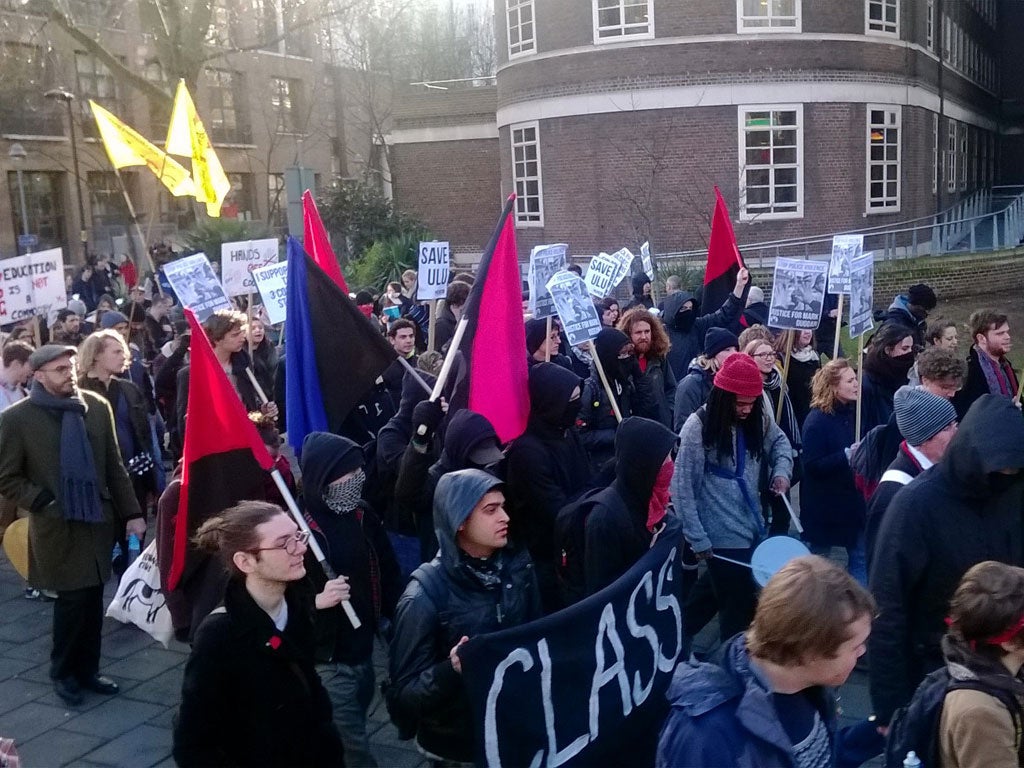The students aren't revolting: Why it's a myth that political activism is growing at our universities
Universities are not the hotbeds of revolution you might think they are, argues Tom Foster

You hear in the news thousands of protesters in London, plus the various student protests occurring from Birmingham to my own Sussex, and think students are really spearheading the movement for change.
Yet like the majority of society, students are by and large apathetic. Occupy Sussex has over 4,000 likes on their Facebook page. Impressive, until you consider that around 13,000 students attend Sussex. Only around 30 per cent of the student body has bothered to like the Facebook page supporting the cause. Even less turn out for the demos. I have seen countless times students accepting leaflets from protesters then at the nearest opportunity throwing them in the bin, not even glancing at the content.
At an emergency meeting held by Sussex Student Union in response to the suspension of the ‘Sussex Five’, everyone at the meeting (including myself) was ecstatic that 500 students attended. With over 450 students attending then the decision at the meeting could be binding. Yet there is glaring minority issue here. Around 3.5 pwe xwnrof students at Sussex are required to make Union binding decision, which is supposed to reflect the will of the majority of students. The low count required is out of necessity because so many students don’t bother turning up; if they put it any higher they wouldn’t make any binding decisions.
So in reputation and in the media Sussex has become known as a sort of beacon of political activism, yet this only true of the minority not the majority. Some may state that it is protests being too left winged which is the issue, however, the more apparent issue here is apathy. Plus it’s hard to motivate yourself to go to a demo with a hangover and an essay to hand in the next day.
This isn’t an exclusive Sussex student issue though. In London, 3,000 students protested to get #copsoffcampus, yet the University of London boasts that there is a community of 120,000 students attending its various institutions. It is even grimmer when you read how many vote in student union elections. An NUS election data survey for 2011/12 found just over 16 per cent vote in elections. At the time of the survey, no SU at any of the Russell Group of universities or the recently disbanded 1994 group got over 23 per cent student turnout.
The lack of student political activism thus is more than just apathy; it's acute laziness. Hangovers, deadlines and crappy TV occupy a student’s time more than political activism. So we need to strip away this unfounded belief that universities are hubs of action and protest. Instead we need to face the harsh truth, that it is the minority, not the majority, who give universities and campus life the political flair.
Neil Clark recently wrote an article stating; “It’s no surprise why Britain’s students are more restive today that at any time since the late 1960s.” Yet my experience is that students are largely un-restive, and the idea that the majority of students are spearheading the political movement for change is as flawed as cuts to education.
Subscribe to Independent Premium to bookmark this article
Want to bookmark your favourite articles and stories to read or reference later? Start your Independent Premium subscription today.

Join our commenting forum
Join thought-provoking conversations, follow other Independent readers and see their replies